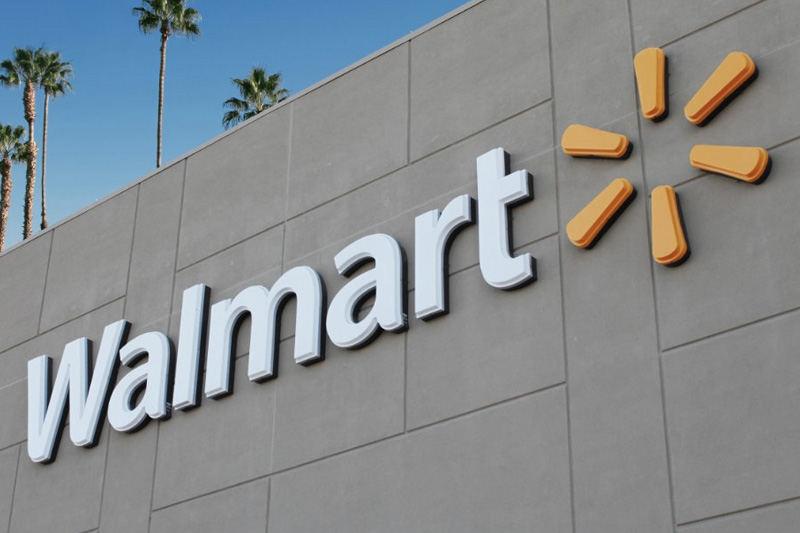This post was originally published on this site
https://i-invdn-com.investing.com/trkd-images/LYNXMPEIAO0JJ_L.jpg
NEW YORK (Reuters) – Counting the days until Christmas is a major marketing move for retailers this year. Retailers from Target (NYSE:TGT) to LVMH’s Christian Dior are betting that the spirit of this season can be summed up with a centuries-old religious object: the Advent calendar.
The calendars traditionally mark every day in December of Advent, a time of reflection for Christian believers and of preparation for the Nativity and expected return of Jesus Christ. Retailers’ secular versions generally sport 12, 24 or 25 small, numbered compartments, each with a unique item to be revealed daily leading up to Christmas.
Dior is selling a $3,500 Advent calendar inside a wooden and cotton canvas box fashioned like its Paris boutique on Avenue Montaigne. Open a door and slide out the drawer daily. You’ll find one of 12 fragrances, four candles, four soaps, three candle accessories, and a scented ornament.
For toddlers, Walmart (NYSE:WMT) sells the Baby Shark Advent Calendar, priced at $44.99. Behind 24 little doors are parts for 18 small toys, including a tiny candy-cane slide. “Count down to Fishmas,” the box beckons.
And for anglers, there’s a $34.99 fishing tackle Advent calendar with life-like and color-changing soft baits at The Fishing Shop.
Inflation is high. The economy is wobbly. Stores have too much inventory. And shoppers are mostly too cautious to splurge. Retailers see the calendars as a way to introduce products that people otherwise might not have bought or tried, nabbing an early-season sale from people who want to treat their friends, family and even pets to small luxuries.
By rolling out new themes in calendars priced $3 to $3,500, stores also are capitalizing on social media. “Unboxing” Advent calendars is hot with influencers such as @imJulieKay. She posts videos of herself opening each compartment, triggering debate among her 4.4 million followers over which calendars may be overpriced.
POPULAR FORMAT
Cadbury was the first to mass produce chocolate Advent calendars in 1971. But the format has grown in popularity since minimal offerings in 2013, according to Heather Ibberson, retail analyst at EDITED, a data analytics firm.
U.K-based high-end department store Liberty launched its own Advent calendar in 2014, which Ibberson said has become “the most successful and fastest-selling product in its nearly 150-year history.”
Selfridges & Co has 128 Advent calendars priced from 4.99 to 623 pounds this season, more than double last year’s offerings. The U.K.-based retailer said in early October “Advent calendar” was the highest searched term on its website and its beauty calendar sold out its first release. It claims it was the first to offer a beauty Advent calendar.
Such calendars are an effective tool to convince early holiday shoppers “to check something else out,” said Mark Cohen, director of retail studies at Columbia Business School.
“Opening the drawers of this Advent calendar is reminiscent of the experience you get on our beauty floors, in which we take you through the brands and products,” said Marissa Galante Frank, Bloomingdale’s accessories and beauty fashion director.
Advent calendars can’t stay on shelves on the seventh floor of the luxury department store Bergdorf Goodman in New York. Inside a red box with gold embroidery are 24 small sliding compartments filled with home fragrance sprays, candles, carparfums and ornaments by Italian fragrance brand Dr. Vranjes Firenze, priced at $629.
Rival Saks Fifth Avenue has 18 calendars for sale this year up from 12 in 2021, priced $65 to $3,500.
Discount supermarket ALDI said it has 25 holiday calendars. The ALDI Holiday Magic Wine Advent Calendar includes 24 unique labels and 16 wine varieties from eight countries of origin for $59.99. Each wine label has a QR code that shoppers can scan to learn more about the wine.
“The consumer is overwhelmed with an often unmanageable range of choices,” said Howard Meitiner, former President and CEO of Sephora USA. “There has been a move toward seasonal new product.”


